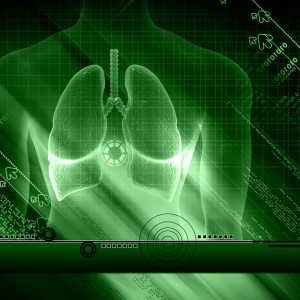 Researchers at the University of Cambridge have managed to recreate a set of mini-lungs in a project that aims to discover new treatments to address those suffering from cystic fibrosis.
Researchers at the University of Cambridge have managed to recreate a set of mini-lungs in a project that aims to discover new treatments to address those suffering from cystic fibrosis.
Through the use of stem cells directly collected from patients suffering with the disease, the mini-lungs were designed to function just like real lungs. These artificial lungs can be used to test treatments and drug therapies that might serve to address several respiratory illnesses.
The researchers sampled skin cells from patients with a specific type of cystic fibrosis gene mutation. Scientists altered the cells by reprogramming them so they could be pluripotent and grow into embryonic lung cells. Distal airways — the most affected region of the lungs by cystic fibrosis — were also created.
“In a sense, what we’ve created are ‘mini-lungs.’ While they only represent the distal part of lung tissue, they are grown from human cells and so can be more reliable than using traditional animal models, such as mice. We can use them to learn more about key aspects of serious diseases — in our case, cystic fibrosis,” explained Nick Hannan, the lead researcher on the project.
[adrotate group=”9″]
A fluorescent dye sensitive to chloride was used to test the mini-lungs. If properly working, chloride would pass through the uninhibited distal airways in normal lungs, but not in the lungs of individuals with cystic fibrosis. The outcomes observed were as expected. Further testings revealed a drug that improved cell functioning in the lungs of cystic fibrosis patients.
“We’re confident this process could be scaled up to enable us to screen tens of thousands of compounds and develop mini-lungs with other diseases such as lung cancer and idiopathic pulmonary fibrosis. This is far more practical, should provide more reliable data and is also more ethical than using large numbers of mice for such research,” concluded Hannan.
Cystic fibrosis is a life-threatening condition that affects the lungs and digestive tract, characterized by the accumulation of layers of very thick mucus that settle in the airways, resulting in problems in breathing and the increase of the probabilities of developing respiratory infection. Almost 70,000 people in the world suffer from cystic fibrosis.

